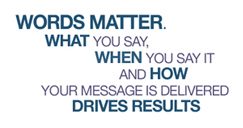Spot the difference
FT Magazine June 16, 2014

If a computer program has become indistinguishable from a 13-year-old, that may be because many 13-year-olds are now indistinguishable from their computers

The news that a computer has managed to simulate the conversation of a 13-year-old boy is being seen as a significant milestone in the progress of artificial intelligence. It is known as the Turing test and in recent experiments at the Royal Society, the computer program became the first to pass by fooling a third of the judges into thinking they were talking to a Ukrainian teenager named Eugene Goostman.
We have not yet seen the transcript of the conversation but previous exercises have been designed to catch the computer off guard, presumably by asking it to tidy its room or just occasionally help with the housework, ready compliance being a surefire giveaway. We can also assume that the successful computer program asked the judges for money and insisted that it was time it was bought a better phone. A previous attempt to fool the judges failed when the 13-year-old described its hobbies as “spending time with my family”.
I am not altogether sure that copying a 13-year-old is the stiffest possible test, however. If there is one cohort computers have had ample opportunity to study it is young teens. Indeed, if a computer program has truly become indistinguishable from a 13-year-old, that may be because many 13-year-olds are now indistinguishable from their computers. The corollary to the Royal Society experiment must be that a third of judges mistook a 13-year-old for a machine. This is easily done – the bizarre fractured sentences, the sudden changes of subject and barely intelligible prose that show you “just don’t understand” must make identification difficult. If it were not for the one’s reliance on Clearasil, we might never be able to tell them apart.
I do worry, however, that setting the benchmark for artificial intelligence at the level of a pubescent teen is storing up trouble. You know what happens in Terminator; well, imagine a Skynet with pimples and a strong sense that no one understands it. And teenagers hate getting up early. Do we really want artificial intelligence that insists on remaining offline till 2pm and then only wakes up to make itself some toast? I know that we need to recognise developmental milestones but with AI we seem to be regressing. First we had a computer that could beat Garry Kasparov at chess. Then we had a computer that could win Jeopardy! Now we have a programme that can tell you that “that is SO unfair”.
The experiment does raise some interesting sociological questions. At what age does the simulated 13-year-old unfriend its creator on Facebook? Is the 13-year-old child computer simulation still on Facebook or does it already favour chat apps like WhatsApp and Snapchat? Does Eugene yet realise that Justin Bieber is so over – even for his programmatic fan base?
These advances also offer some intriguing domestic opportunities. Could we soon see the creation of the virtual child – a boon to childless families and power-career couples. I am not entirely sure how this would work out but it could really play havoc with the nature versus nurture argument. In time we might also see virtual parents, who offer a sympathetic ear, timely advice and complain that you never call any more.
And yet, for all this mockery, perhaps it is appropriate that such advances are being modelled around a teenager. For who is actually likely to represent the world we are moving into – an era so many of us middle-aged folk will struggle to comprehend – but that polyglot 13-year-old Ukrainian? Or perhaps he’s Chinese, Indian, Californian – or maybe if we are very lucky, European. For the first time in modern history, the young have at least partial control of the forces shaping the world and are building it in their image. They are defining the tools for the future and business is modelling itself around them.
This is a difficult concept for people of a certain age. The future is coming and it is SO unfair.
 +7 (495) 969-87-46
+7 (495) 969-87-46





















